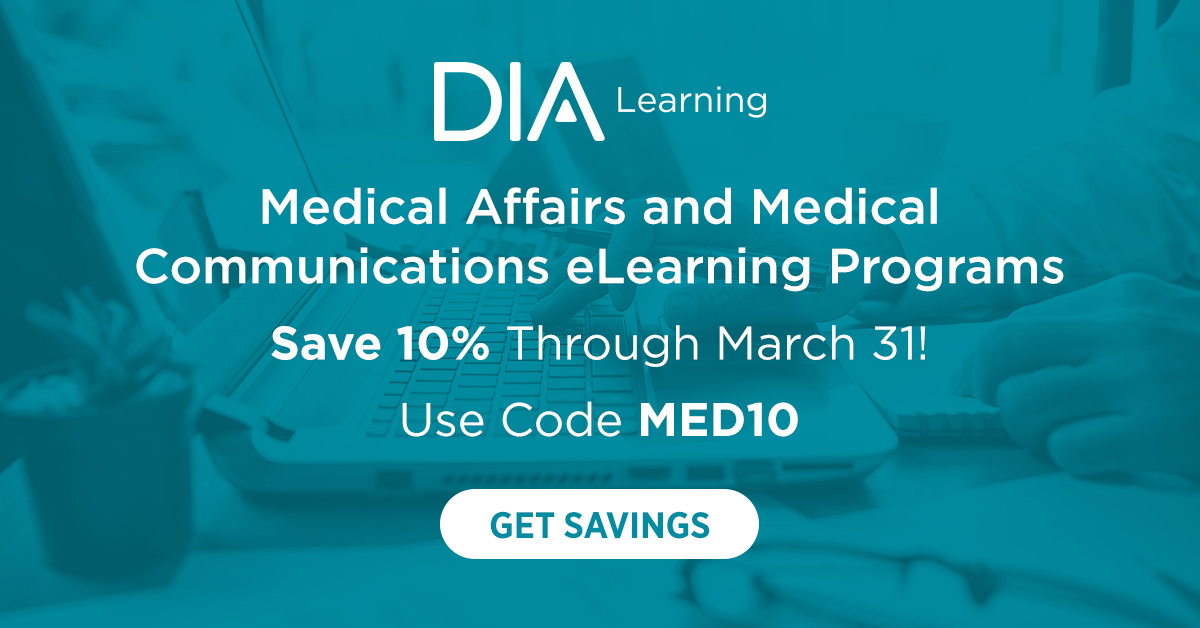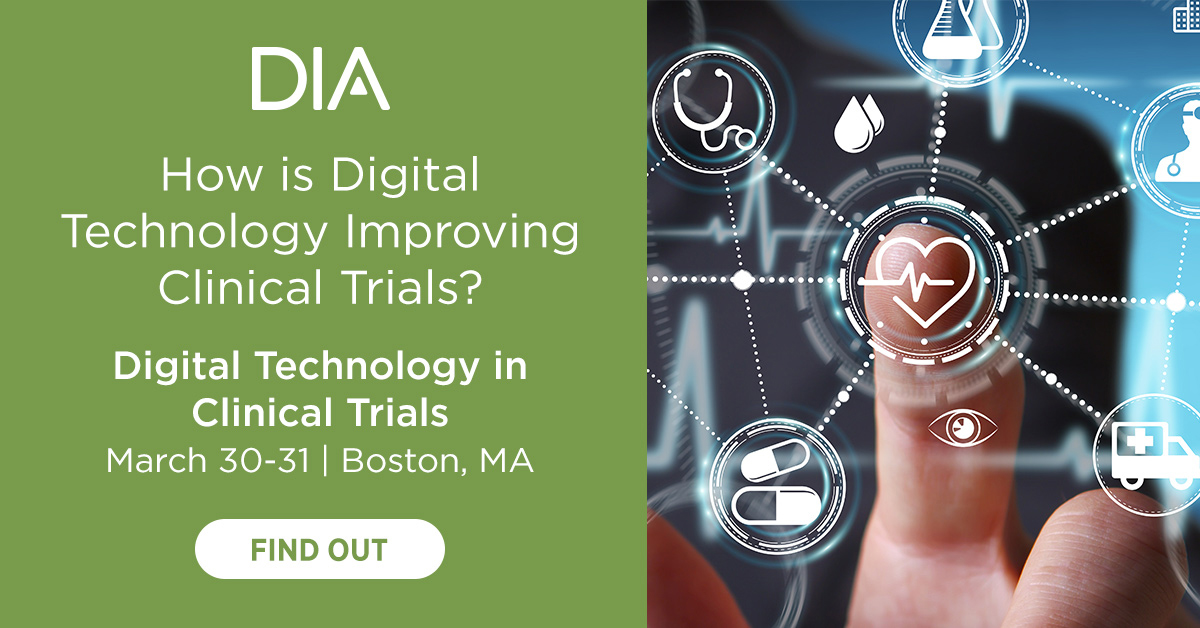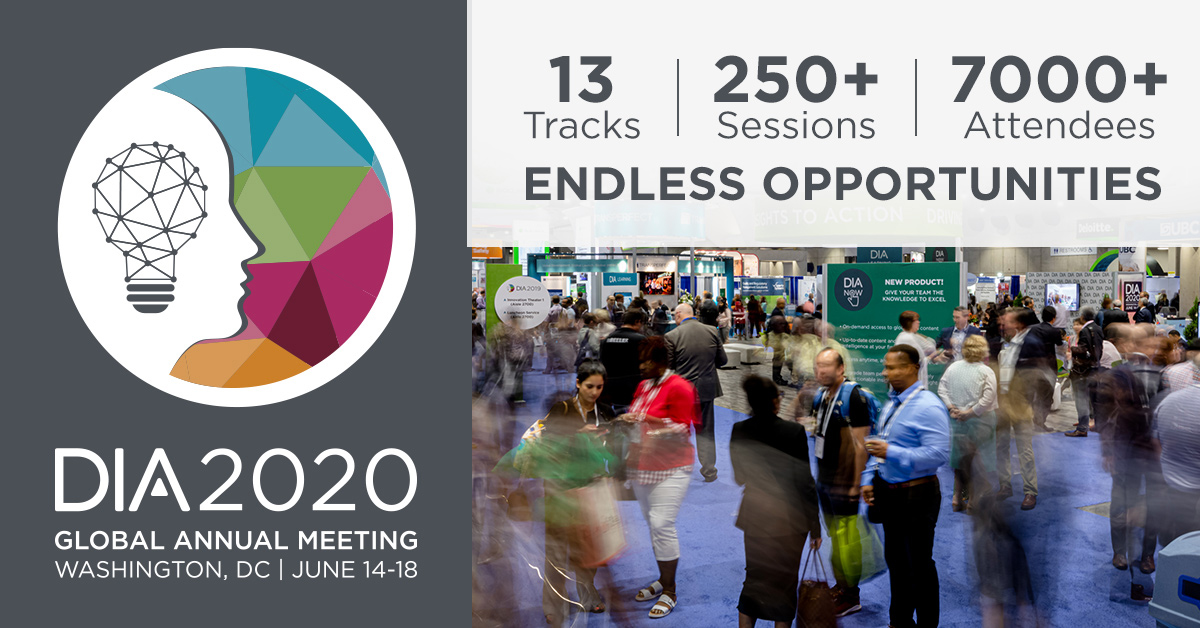March 2020 Global Forum
Table of Contents
AROUND THE GLOBE
COMMUNITY SPOTLIGHT
CAREER COLUMN
EXECUTIVE LEADERSHIP
Subscribe
Love Global Forum‘s new online format? Subscribe today and never miss an issue.
Editorial Board
Content stream editors
Gary Kelloff US National Institutes of Health
David Parkinson ESSA Pharma, Inc.
regulatory science
Yoshiaki Uyama Pharmaceuticals and Medical Devices Agency (PMDA)
Adora Ndu BioMarin Pharmaceutical, Inc.
Patient engagement
Deborah Collyar Patient Advocates In Research (PAIR)
Lode Dewulf Servier
Editorial Staff
Alberto Grignolo, Editor-in-Chief Parexel International
Ranjini Prithviraj, Global Associate Director, Content Collaboration DIA Publications
Sandra Blumenrath, Science Writer DIA Publications
Chris M. Slawecki, Senior Digital Copyeditor DIA Publications
Regional Editors
David Mukanga Bill and Melinda Gates Foundation
ASEAN
Silke Vogel Duke-National University of Singapore Medical School
AUSTRALIA/NEW ZEALAND
Richard Day University of New South Wales, Medicine, St. Vincent’s Hospital
CANADA
Judith Glennie JL Glennie Consulting, Inc.
Megan Bettle Health Canada
CHINA
Ling Su Shenyang Pharmaceutical University, Lilly Asia Ventures
Europe
Thomas Kühler Sanofi R&D
INDIA
J. Vijay Venkatraman Oviya MedSafe
JAPAN
Akiko Ikeda Janssen Pharmaceutical K.K.
MIDDLE EAST
Inas Chehimi Novartis
USA
Ebony Dashiell-Aje FDA
Young Professionals Editor
DIA Membership
Bringing together stakeholders for the betterment of global health care.
Chinese Health Authorities, Pharmaceutical Industry, and Healthcare Professionals Race against Time
Fighting Coronavirus Disease 2019 (COVID-19) Epidemic
PPC China
he Coronavirus Disease 2019 (COVID-19) caused by the coronavirus SARS-CoV-2 (previously known as 2019-nCoV), first identified in Wuhan City in the Hubei Province of China, has led to more than 79,000 cumulative confirmed cases of human infections and at least 2,900 deaths in China (as of March 1, 2020). It has also spread quickly to more than 60 countries beyond China. In China, a series of powerful measures were taken to contain the spread of COVID-19, including the early identification and quarantining of infected patients. Chinese health authorities, pharmaceutical companies, and healthcare professionals are also responding quickly and working around the clock to accelerate the research and development of products for the identification, prevention, and treatment of COVID-19.
Hand-In-Hand with Companion Diagnostics: The Past, The Present, The Future
Elizabeth Mansfield IVD Consulting
ompanion diagnostics are a class of diagnostic devices that has become important not only in personalizing therapy for patients, but also for developers of therapeutic products, who must now consider not only development of the drug or biologic, but also development of a diagnostic test to identify or manage patients who use the therapeutic product.
![]() Podcasts
Podcasts
Safety is No Accident
Snapshots of DIA 2020 Pharmacovigilance and Risk Management Strategies Conference
Science Writer
IA’s 2020 Pharmacovigilance and Risk Management Strategies Conference included thirteen sessions that describe the current regulatory environment as well as primary sources of risk. The sessions, together with a keynote talk by Steven Murray (Exponent), provide a foundation for making informed and up-to-date decisions in a pharmacovigilance program.
Key Takeaways
- New ICH and CIOMS programs are underway to address evolving issues related to patient engagement and safety data collection.
- The global regulatory framework for pharmacovigilance has evolved in different regions independently and consequently exhibits a regional focus on different areas of safety and pharmacovigilance practice.
- The regulatory context surrounding risk management tools, such as REMS and RMPs, continues to evolve in a regional manner, making global risk management a challenging endeavor.
- Current research findings on topics such as DILI and alloCAR-T therapies will have an impact on the benefit-risk analysis associated with these therapies.
- Several pharmacovigilance approaches are being pursued to help address the growing concern of medication errors.
- Regulatory safety assessment is making growing use of real-world evidence using novel approaches.
![]() Podcasts
Podcasts
Around the Globe
Updates from China, India, and Japan
Eisai Co. Ltd., Japan
Pfizer R&D, Japan
Oviya MedSafe, India
dMed, China
IA’s recent Pharmacovigilance & Risk Management Strategies Conference 2020 opened with experts providing Asia Region Updates from India, Japan, and China, in a session chaired by DIA Fellow E. Stewart Geary and summarized in this report.
![]() Podcasts
Podcasts
Around the Globe
Simultaneous National Scientific Advice
Sanofi R&D
he significance that sponsors place on soliciting input on their development projects from regulators is evidenced by the steadily growing number of Scientific Advice procedures given by, for instance, the European Medicines Agency (EMA) or US Food & Drug Administration (FDA). Indeed, EMA reported they granted 466 Scientific Advice and follow-up requests in 2018 (the 2019 report has not yet been published) compared to 264 in 2008.
![]() Podcasts
Podcasts
Around the Globe
Therapy Products
4th DIA Cell and Gene Therapy Products Symposium in Japan
Jansen Pharmaceutical K.K
he development of regenerative medicines such as cell and gene therapy products was accelerated in Japan by new regulatory and legal systems that came into effect in 2013 and it continues to attract considerable international attention in not only scientific journals but in more general publications. Reports on these development advancements have revealed numerous challenges in the development, distribution, and post-market management of these products.
Community Spotlight
New Advanced Therapy Community Launching in June
Richard Dennett
PPD
IA is launching a new Advanced Therapy Community for cross-functional discussion of advanced therapy product development from experimental inception through pre-clinical and clinical development, marketing, and beyond. These promising therapies face unique challenges that are often a combination of issues at different functional levels of the overall development program.
Career Column
Delivering Effective Presentations: Keeping Your Audience Engaged
Sanofi
t the beginning of 2019, I walked into the most challenging and intimidating presentation of my life. At that time, I was vying for a fellowship in the pharmaceutical industry and competing against hundreds of pharmacy students from across the country. I was almost at the finish line: After going through four grueling rounds of interviews, I was one of the top candidates. My last and most important step was to deliver a 30-minute presentation.
This was my golden opportunity to distinguish myself and my abilities among some of the top leadership in the company. This could clinch the fellowship of my dreams and jumpstart my career.
But my excitement for this opportunity was also couched by fear: How am I going to stand out? How can I make sure people will remember me?
As I found myself seeking answers to these questions, I searched for guidance from well-known motivational speakers, leaders across all major industries, and most importantly, friends and mentors with considerable leadership experience.
Here’s what I found.








